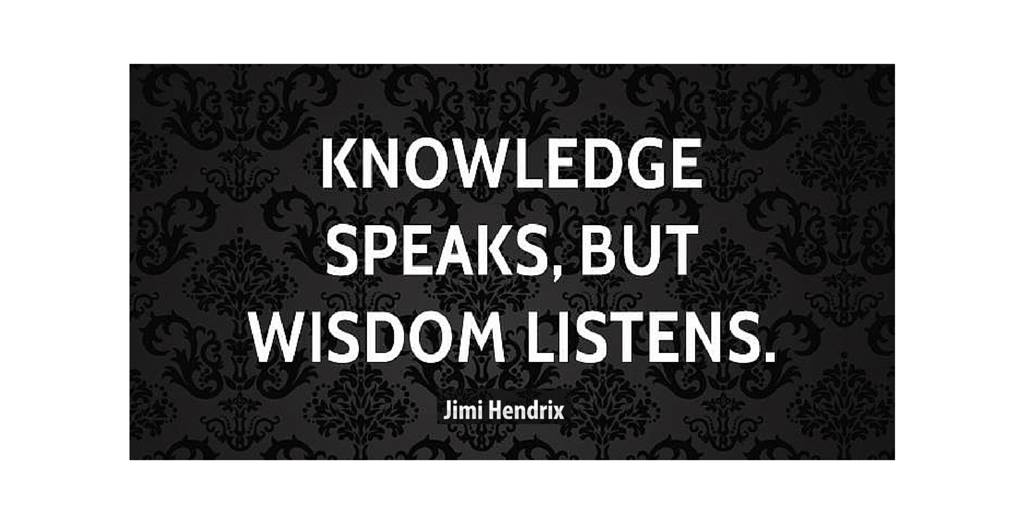It’s very difficult to define Wisdom, but people generally know it when they see it. Wisdom involves an integration of knowledge, experience, and deep understanding that life isn’t always easy… nor should we want it to be. Being wise incorporates tolerance for the uncertainties of life as well as its ups and downs. There’s an awareness of how things play out over time, and that awareness provides a sense of balance.
There’s an old saying that goes “with age comes wisdom.” But that’s not necessarily true. When the dictionaries define “wisdom”, they cite such qualities as “discernment, insight, perception, perceptiveness, perceptivity, sagaciousness, sagacity and sageness”. (Merriam-Webster)
While these qualities may appear to come naturally to some of us as we age, they’re certainly not guaranteed. For most of us, the qualities of wisdom are hard-won, coming from living through multiple challenges over long periods of time.
Some of us become victims of life’s circumstances, others become wise.
This ability to transcend the ups and downs of life with wisdom takes faith, discipline and grace.
Wise people generally share an optimism that life’s problems can be solved and experience a certain amount of calm in facing difficult decisions. Intelligence (if anyone could figure out exactly what true intelligence means) may be necessary for wisdom, but it definitely isn’t enough. In order to create wisdom in yourself you must develop the ability to see the big picture, a sense of proportion, and considerable introspection.
It all comes down to logic versus emotion (it always does doesn’t it?). Smart people tend to process information in a logical way (which is GOOD) whereas wise people process the emotional, the spiritual, and the subtle side of the logic as well (even BETTER).
You can’t learn anything if you think you know it already. Open your mind, realize that you might be wrong or mistaken, and you may be ready to learn. This is the path to wisdom.





